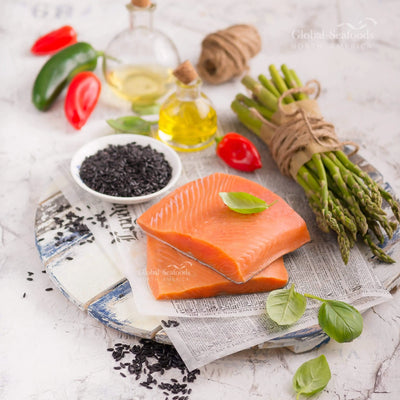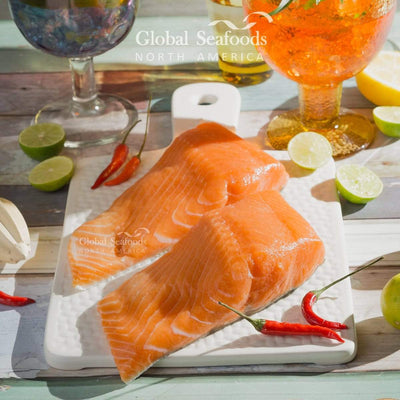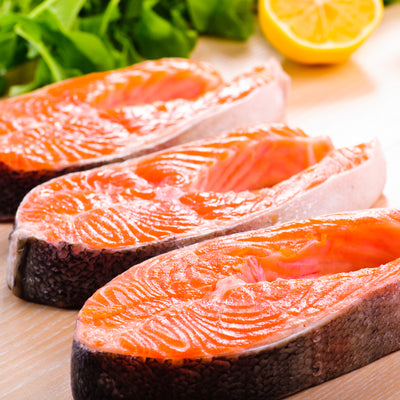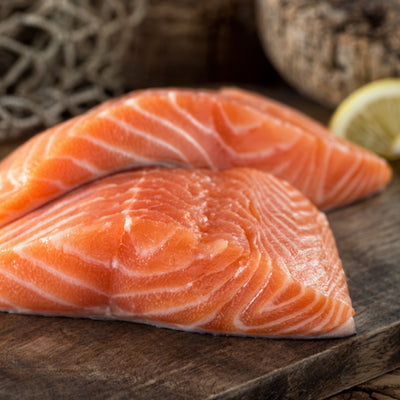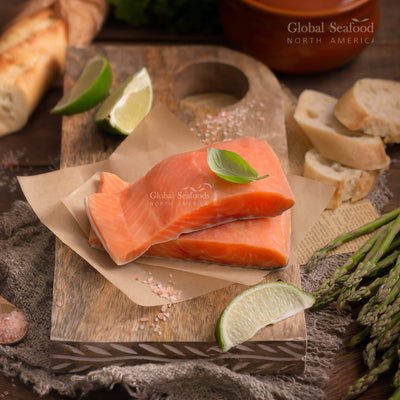Mastering Salmon Fishing Techniques: Tips for Catching the Big One

Salmon Fishing Techniques: Mastering the Art of Catching the Big One
Salmon fishing is more than just a pastime—it’s a skillful and rewarding adventure that attracts anglers from all walks of life. Whether you’re after Chinook, Coho, Sockeye, or Chum Salmon, the right techniques and knowledge can turn your fishing trip into a story worth sharing. This guide covers everything you need to know to catch salmon like a pro, from selecting the right gear to finding the perfect fishing spots.
Choose the Right Gear
Having the proper equipment is essential for salmon fishing success. Salmon are powerful fish that can put up a good fight, so durable and reliable gear is a must.
Essential Gear for Salmon Fishing
- Fishing Rod: A medium-heavy rod with fast action works best for salmon. This type of rod offers enough strength to handle the weight of large fish while providing sensitivity to feel subtle bites.
- Reel: Spinning reels are great for beginners due to their ease of use, while baitcasting reels provide precision for experienced anglers. Look for a reel with a strong drag system.
- Line: Braided lines are the top choice for salmon fishing because of their high tensile strength and low stretch. Use a 30-50 lb test line depending on the size of salmon in your area.
- Lures and Baits: Salmon are attracted to lures that mimic their natural prey. Choose lures like spoons, plugs, spinners, and soft plastics in bright, reflective colors. Live bait such as herring, anchovy, or shrimp can also be highly effective.
For a trusted source of fresh, high-quality salmon, visit Global Seafoods’ salmon collection.
Find the Perfect Location
Finding the right location is critical for salmon fishing. These migratory fish can be found in various habitats, depending on the time of year and their life cycle stage.
Freshwater vs. Saltwater
- Freshwater: Many salmon species migrate upstream to spawn in rivers and streams. Target deep pools, river bends, and areas near spawning grounds during these migrations.
- Saltwater: In the ocean, salmon gather near coastlines, estuaries, and underwater structures where food is abundant. Look for areas with active currents and baitfish activity.
Key Features to Look For
- Depth: Salmon prefer deeper waters, especially during warmer months. Use a depth finder to locate schools of fish in lakes or coastal waters.
- Structures: Natural features like rocks, logs, and underwater ledges attract salmon by providing shelter and food sources. Focus on casting or trolling near these areas.
- Current and Tide: In tidal waters, fish during an incoming tide when salmon are more active. In rivers, look for eddies and slower-moving sections where salmon tend to rest.
Explore our selection of premium salmon products, such as Coho Salmon Caviar or Sockeye Salmon Fillets, to inspire your next fishing trip.
Master Proven Fishing Techniques
The technique you use can make or break your fishing trip. Here are some tried-and-true methods for catching salmon:
Trolling
Trolling is one of the most effective methods for salmon fishing in both saltwater and freshwater. It involves pulling a lure or baited hook behind a moving boat at varying depths.
- Use a downrigger to keep your lure in the salmon’s strike zone, typically 20-80 feet deep.
- Adjust your speed based on water conditions—slower speeds are ideal for colder water.
Casting and Retrieving
Casting works well in rivers and streams where salmon are actively moving.
- Cast your lure upstream and let it drift naturally with the current.
- Use a slow, steady retrieve to mimic the swimming motion of baitfish.
Jigging
Jigging is a vertical fishing method where you lift and lower your lure to mimic prey movements.
- Drop your jig to the desired depth and use short, sharp movements to attract salmon.
- This method is particularly effective near underwater structures.
For the best tools and accessories, check out Global Seafoods’ featured products.
Consider Water and Seasonal Factors
Water temperature, clarity, and the time of year all influence salmon behavior. Understanding these factors can help you plan a successful fishing trip.
Water Temperature
Salmon are most active in cooler waters, usually between 50-60°F. Fish during the early morning or late evening when water temperatures are lower.
Seasonal Tips
- Spring: Focus on Chinook and Sockeye Salmon as they begin their early migrations.
- Summer: Look for Coho and Pink Salmon in coastal waters and estuaries.
- Fall: Target spawning salmon in rivers and streams, especially Chinook and Chum Salmon.
For seasonal favorites, explore Atlantic Salmon and Silver Salmon.
FAQs About Salmon Fishing
Q: What’s the best bait for salmon fishing?
A: Live bait like herring, anchovy, or shrimp works wonders. Artificial lures mimicking baitfish are equally effective.
Q: Do I need a fishing license for salmon fishing?
A: Yes, most regions require a valid fishing license for salmon fishing. Check your local regulations for specific requirements.
Q: Can I catch salmon from the shore?
A: Absolutely! Casting from riverbanks, piers, or beaches during salmon runs can yield excellent results.
Conclusion
Salmon fishing is an exhilarating outdoor activity that combines skill, strategy, and patience. By choosing the right gear, identifying ideal fishing locations, and mastering effective techniques like trolling and jigging, you can increase your chances of landing a prized catch.
For fresh, high-quality salmon and seafood products, visit Global Seafoods to bring the taste of the ocean to your table.
Explore more tips, recipes, and insights on our YouTube Channel. Good luck, and happy fishing!
Also in News

How to Make Sea Bream Sushi With Dry-Aged Tuna & Crab Roll — Step-by-Step With Chef Joshua
A complete guide to making Sea Bream sushi at home, including filleting, curing, slicing, and building a Dry-Aged Tuna & Crab sushi roll. Chef Joshua shares professional tips for restaurant-quality results.

Boiled Crab for Game Night: Everything You Need for a Perfect Seafood Party
Take your game night to the next level with a Boiled crab party. Learn the best recipes, cooking tips, and hosting hacks for a memorable seafood feast.

Boiled Crab for Date Night: A Romantic Guide to the Perfect Seafood Feast
Make your next date night unforgettable with a romantic Boiled crab experience. This guide covers everything you need to know, from ambiance to the best crab varieties.


